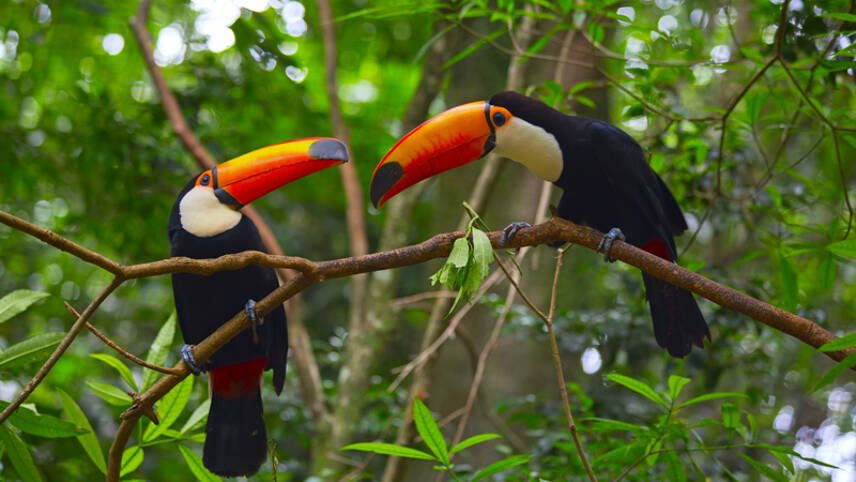Register for free and continue reading
Join our growing army of changemakers and get unlimited access to our premium content

Decline was found to be most pronounced in Latin America and the Caribbean
Nature NGO WWF has today (13 October) published the latest edition of its Living Planet Report. The last edition, published two years ago, revealed that the population sizes of animals (excluding insects) had decreased by an average of 68% between 1970 and 2020.
The last two years has seen an acceleration of nature degradation and destruction in many regions, the new report states. It puts the average population size decline for wildlife globally at 69% since 1970.
The speed and intensity of population decline has not been uniform in all regions and among all species, the report emphasizes. WWF has stated that it is “particularly concerned” that the average wildlife population size in Latin America and the Caribbean has dropped by 94% since 1970.
In the UK specifically, the report contains some shocking examples of decline. It states that 97% of the UK’s wildflower meadows have been lost since the 1930s, as have 92% of the UK’s seagrass meadows. There has also been a sharp decline in many bird populations including starlings, skylarks and spotted flycatchers.
WWF has stated that, if the human population size was decreasing as rapidly as wildlife populations, we’d have lost the entire population of Europe, the Americas, Africa, China and Oceania within 52 years.
Summarising the report, the Zoological Society of London’s head of indicators and assessments Dr Robin Freeman said: “ We now have more data than ever about trends in biodiversity and – across a variety of indicators - it’s clear we are being sent a serious message: we are eroding the very foundations of life and urgent action is needed.”
The report stresses that, in the case of most species, it is possible to halt and reverse population decline. However, the damage may well become irreversible in the coming years if trends of decline persist.
Call to world leaders
A key thread running through the report is the disconnect between accelerating nature loss and new nature commitments being made internationally by world leaders.
Back in 2010, nations, convened by the UN, agreed to 20 biodiversity targets under the Aichi framework. None of them were delivered within the ten-year timeframe.
A replacement framework, intended to act as a Paris-Agreement-style deal for nature, was set to be agreed on at biodiversity COP15 in 2020. The Covid-19 pandemic resulted in a string of delays to the agreement and, due to a failure to reach an agreement so far this year, the final round of negotiations is now set for Montreal in December.
Concerns about whether these negotiations will result in a strong agreement and whether nations are willing to deliver its objectives are mounting. Campaign for Nature has this week reported that China is not inviting world leaders to the Montreal meeting – dedicating attendance instead to ministers.
The report calls on all Governments meeting in Montreal to agree on a strong deal, which is science-based and which necessitates the restoration of nature – not just a halt to degradation. The deal should also not allow degradation to continue unchecked this decade, it is argued.
Additionally called for in the report is an acceleration of decarbonisation, given the risk of nature decline resulting from climate change, and for the improvement of rights for Indigenous peoples. It has been stated that while Indigenous peoples account for 4% of the global population, they are present on land where 80% of Earth’s remaining biodiversity is concentrated. The report advocates for land rights for Indigenous communities, including the right to prior and informed consent regarding development on their land.
WWF’s chief executive Tanya Steele said: “This December, our leaders have a ‘now or never’ opportunity to demonstrate real leadership on the global stage by accelerating action and keeping their promises to restore nature and safeguard our net zero goals. But right now, they’re not on track to deliver.”


Please login or Register to leave a comment.